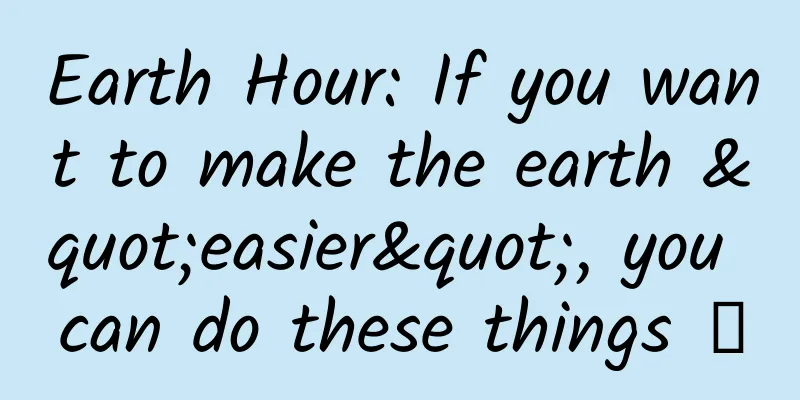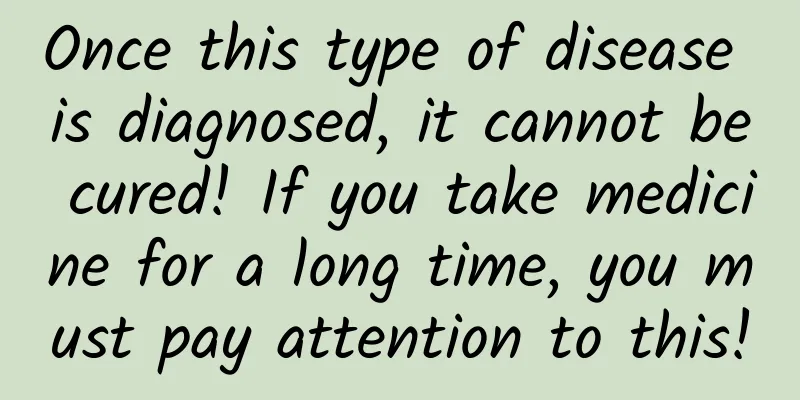Earth Hour: If you want to make the earth "easier", you can do these things →

|
The "Earth Hour" event is a global event launched by the World Wildlife Fund in 2007, calling on individuals, communities, businesses and governments to turn off unnecessary power from 8:30 to 9:30 p.m. on the last Saturday of March each year to show their support for actions to combat climate change. In addition to turning off the lights for an hour, what else can we do in our daily lives to reduce the burden on the earth? Copyright images in the gallery. Reprinting and using them may lead to copyright disputes. 1. Remember to turn off the lights when you leave. Saving electricity is important. In daily life, many people often forget to turn off the lights or power due to carelessness or trouble. 60% of the electricity we use in our lives is generated by burning coal. Burning coal not only consumes the earth's resources, but also produces a large amount of carbon monoxide, sulfur dioxide, nitrogen dioxide and dust, which seriously pollutes the environment. Developing the habit of turning off lights and power can not only save electricity, but also protect natural resources. Copyright images in the gallery. Reprinting and using them may lead to copyright disputes. 2. Garbage classification should be clarified to turn waste into treasure and seek a win-win situation If domestic waste is not handled scientifically, it may cause serious pollution to the atmosphere, soil, and water environment; large amounts of kitchen waste mixed with other waste and landfilled or incinerated will also produce toxic substances that endanger the health of residents. Garbage is a "resource placed in the wrong place", and garbage classification can make these "resources" truly and effectively utilized. The promotion of garbage classification is a long and gradual process, but as long as we start now and start with everyone, it is not too late. Garbage is mainly divided into: hazardous waste, recyclables, wet garbage and dry garbage. (1) Recyclables include waste paper, waste metal, waste plastic, etc., which are garbage that can be recycled. (2) Hazardous waste includes waste batteries, waste medicines, and other waste that is harmful to human health and the environment. (3) Wet garbage includes food waste, leftovers, fruit peels and cores, and other easily corrosive garbage. (4) Dry garbage refers to other domestic waste not classified above. Copyright images in the gallery. Reprinting and using them may lead to copyright disputes. Unsorted garbage is very harmful to the environment and health. Hazardous garbage releases toxic substances containing heavy metals, which can lead to reduced crop yields or even crop failure. Recyclable garbage is not only unable to be recycled but also difficult to degrade, which can cause long-term harm to the land and environment. Wet garbage molds and deteriorates, has a pungent smell, and can breed a large number of microorganisms and mosquitoes and flies, posing a serious threat to people's health. If garbage is not sorted, the main treatment methods are sanitary landfill and garbage incineration, but their utilization efficiency is very low. Because there is a lot of organic matter in the landfilled garbage, which is what we call kitchen waste, a lot of methane will be produced during the landfill process, and there are also problems with wastewater, waste gas and land occupation. If the kitchen waste is removed from the landfill through sorting, the pollution during the landfill process will be greatly reduced. 3 Green and low-carbon removal of " footprints " starts with small things In daily life, everyone's food, clothing, housing and transportation will directly or indirectly leave a "carbon footprint". For example, traveling by plane or by car will produce corresponding carbon emissions. Compared with enterprises, although the carbon emissions of each person are small, they are not to be underestimated when combined. Therefore, if we can reduce energy consumption and carbon emissions as much as possible in our daily lives, such as taking public transportation more often, using environmentally friendly and energy-saving appliances, and developing a green and low-carbon lifestyle, we can contribute to emission reduction in our own way. 4 The source of life is precious, so don’t waste it. A dripping faucet wastes 1 to 6 liters of water a day, and a leaking toilet may waste 3 to 25 liters of water a day. Water resources are not inexhaustible. my country is one of the 13 most water-poor countries in the world. Although the total amount of freshwater resources ranks fourth in the world, the per capita water resources are equivalent to 1/4 of the world level, and the distribution is very uneven. Saving water is both a small matter and not a small matter. For individuals, saving water can be done from the little details of life, such as saving rice water for watering flowers, not taking a shower for too long, and turning off the tap when washing hands with soap. 5 Plastic everywhere is a big problem , look for good " substitutes " carefully The pollution of plastic bags to soil is self-evident. We should reduce the use of plastic bags and always carry cloth bags or reusable shopping bags when we go out. At the same time, we should try to use less disposable bowls, chopsticks, cups, etc. Specifically, the use of non-degradable plastic bags is prohibited in catering take-out services in shopping malls, supermarkets and other places in built-up areas of cities at or above the prefecture level and built-up areas of county towns in coastal areas. Paper straws are used instead of plastic straws, and the use of non-degradable disposable plastic straws is prohibited in the catering industry nationwide. Recyclable tableware is used instead of plastic lunch boxes, and non-degradable disposable plastic tableware is prohibited in catering canteen services in scenic spots and attractions in built-up areas of county towns. Recyclable cartons are used instead of disposable plastic packaging. Source: Xinhua News Agency Although Earth Hour is only 60 minutes long, its significance goes far beyond 60 minutes. In our daily lives, we should also pay attention to environmental protection and cherish our home planet. Source: Science Popularization China, including China Science Popularization Expo, Xinhua News Agency, etc. |
Recommend
Taking Meituan Takeaway’s personal report as an example, let’s talk about user personal behavior reports!
We try to reflect the value of our product throug...
WeChat's latest features at a glance! In addition to dark mode, voice-to-text is also more convenient
[[319532]] The new iOS version of WeChat has more...
Baojun 560 has been recalled many times but to no avail. Legal requests for replacement have been perfunctorily met.
In February this year, due to safety hazards in t...
What is it like to have an international award at the entrance of the village? | Great Power Technology
What is it like to have a super-large bridge in t...
[Smart Farmers] The Wandering Earth from an Agricultural Perspective: Asking Nature for Protein! Here Comes the "Doomsday Food" Survival List
Author: Zhang Wei (Associate Researcher, Chinese ...
Today is Grain Full: Wheat ears are just beginning to grow and mulberry leaves are growing
The sky is already dawning before the rooster cro...
Hybrid APPS Why I am optimistic about you - a tribute to front-end engineers
[[143937]] At the very beginning, the Web used th...
How to choose promotion channels for efficient delivery?
Traffic is the essence of all business, whether o...
Apple couldn’t afford to mess with WeChat before, and now it can’t afford to lose to China: It’s too difficult
The choice between WeChat and Apple has become a ...
Learn Facebook Advertising in One Day (10,000 Words)
Many people ask, is it difficult to learn Faceboo...
My rhinos keep going missing, but this is good news
Editor’s Note: September 22 is World Rhino Day. T...
Internet product monetization: transaction model and billing method of online advertising
This article will help you build the system outli...
Combing your hair frequently vs. not combing your hair often, which is healthier?
In daily life, combing hair is something that alm...
Can’t use your phone during thunderstorms? Don’t be fooled by rumors!
Produced by: Science Popularization China Produce...
Methodology for information flow delivery in wedding photography, food and other industries!
The information flow master who has been in the i...









